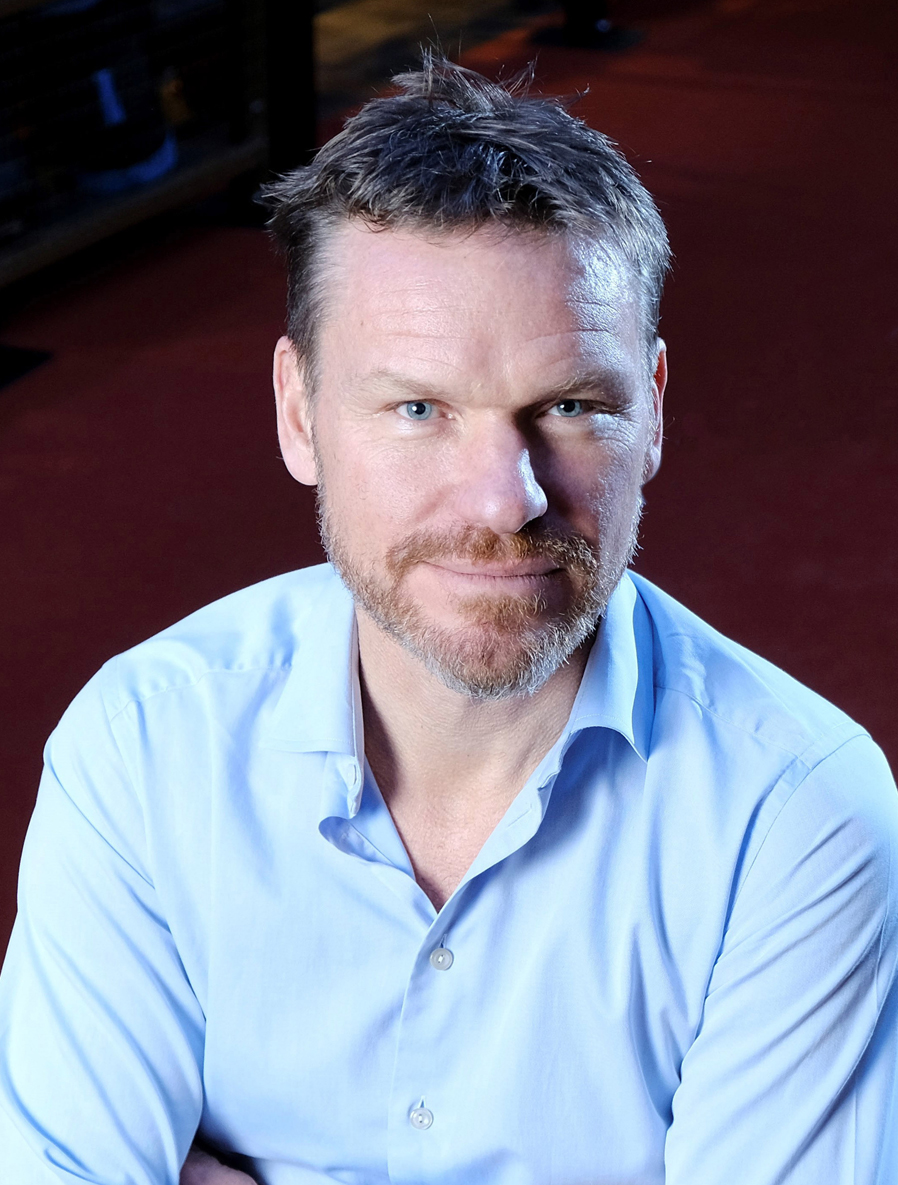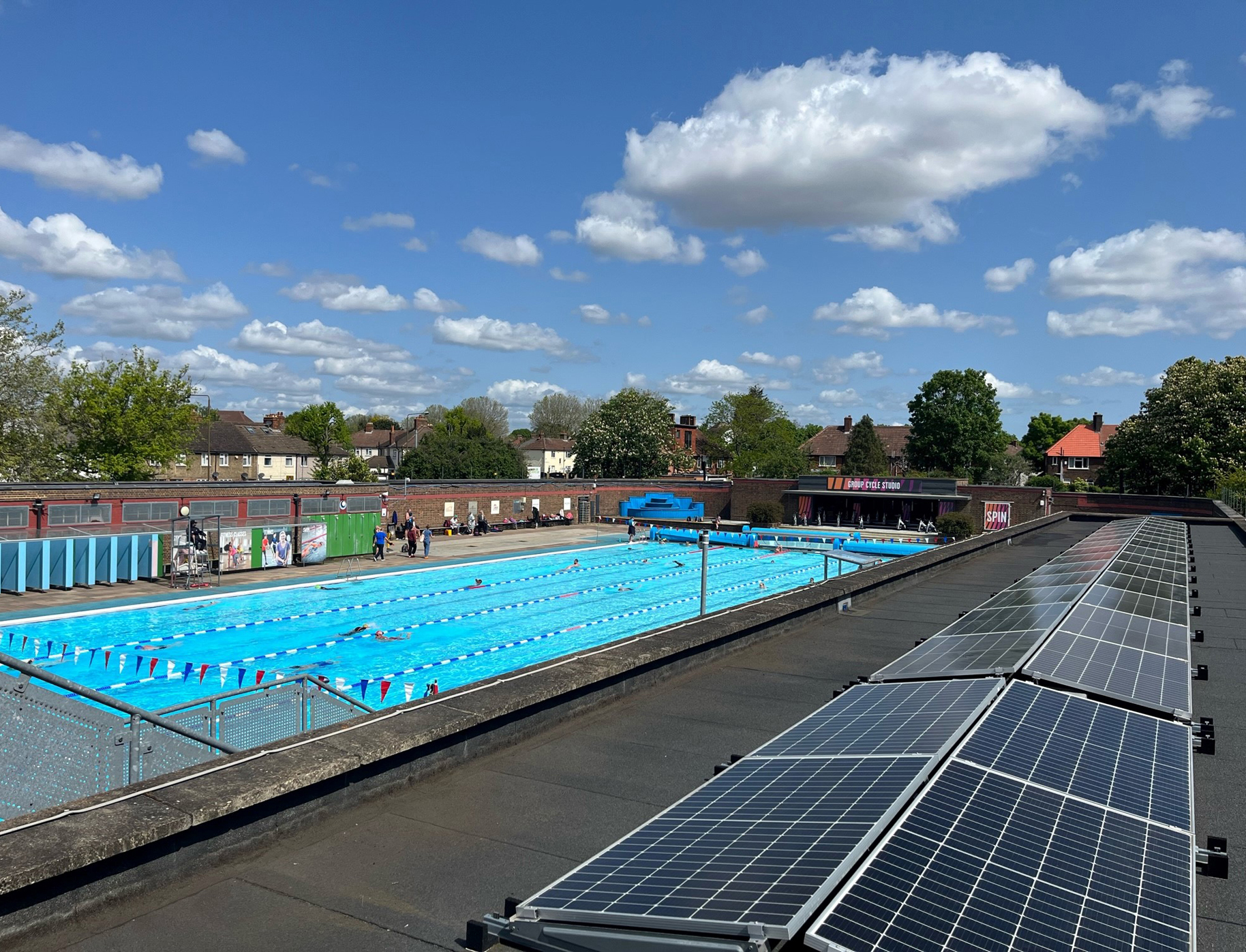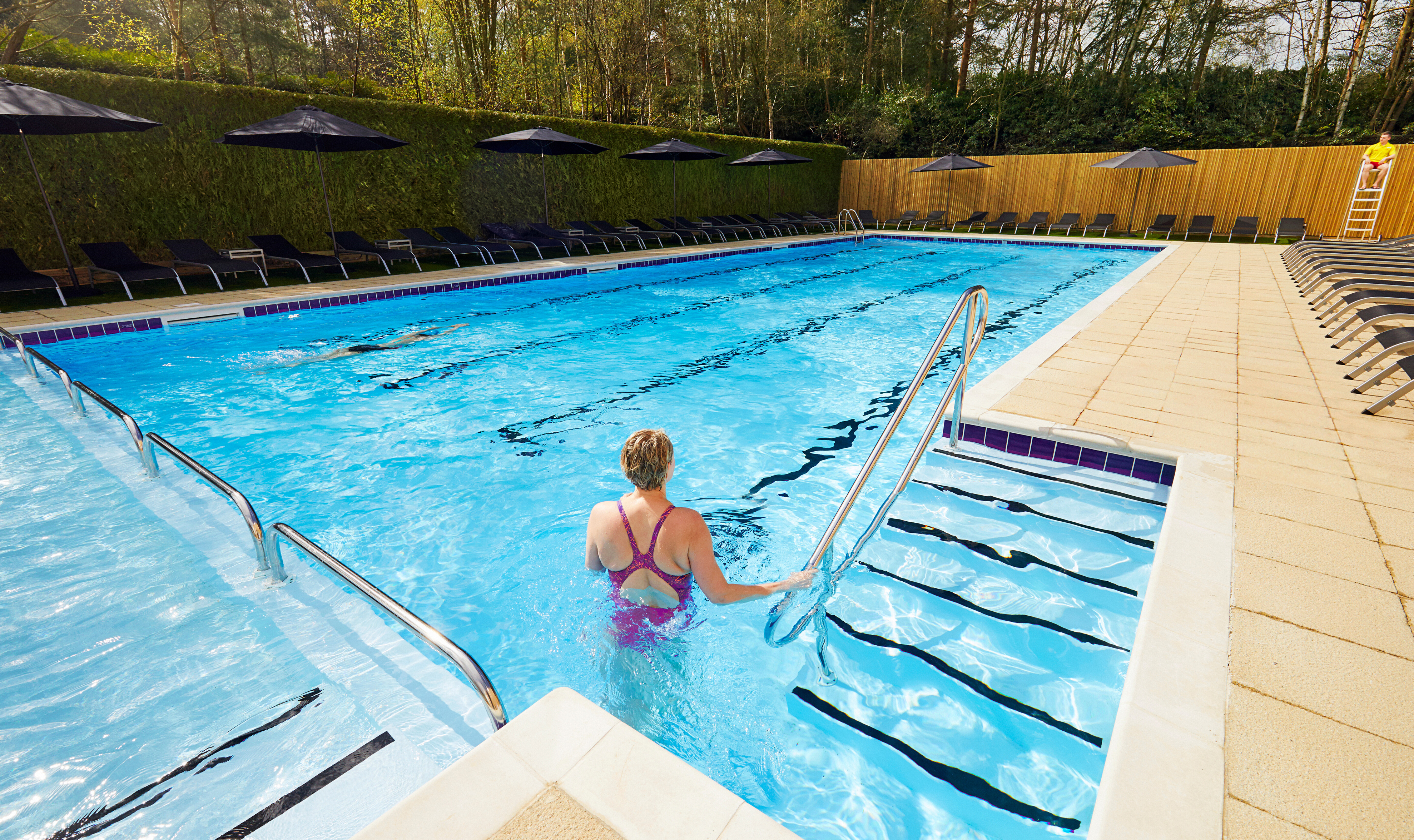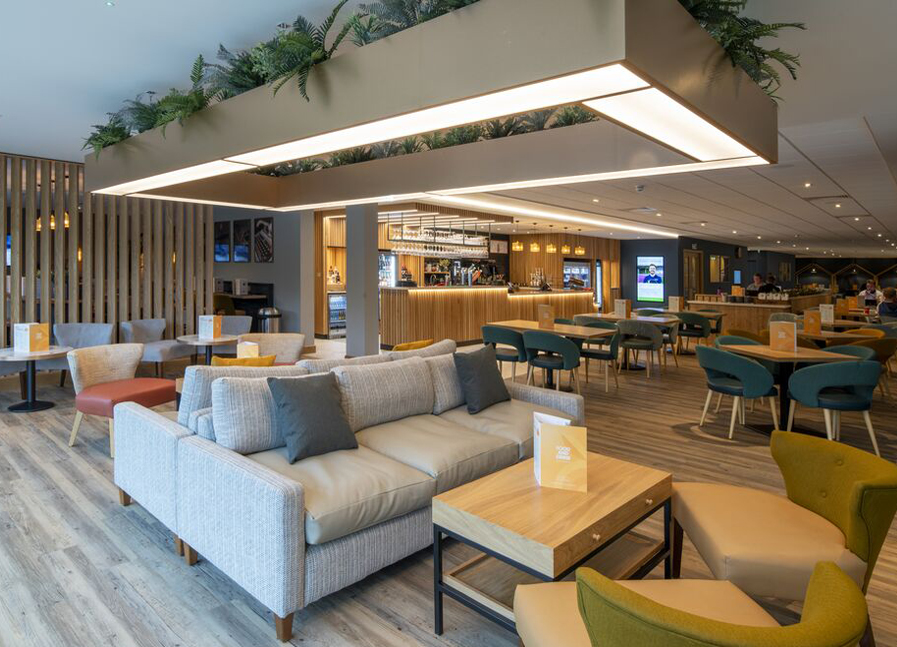|
Leisure Management - Everyone's talking about ESG

Talking point

|
|
| Everyone's talking about ESG
|

While critical for business success, the challenges of ESG can be overwhelming. Operators tell us how they’re tackling it
|


Consumers are increasingly choosing businesses with strong ethical behaviour and commitment to sustainability
photo: Third Space / JON PAYNE
|
|
Colin Waggett
CEO, Third Space

Waggett: ‘ESG is part of being a good citizen of the planet’ / photo: Third Space / JON PAYNE
It’s now important for any business, in any industry, to be considering ESG. Over time it will become a determinant for attracting customers, team members and investment. It’s also part of being a good citizen of the planet, which is an expectation of team members, club members and other stakeholders – including investors.
Although full of buzz words, ESG is really about building a brand and a business which is high quality in every way, taking into account of all stakeholders.
About two years ago we took a big step back and challenged ourselves as to what ESG meant for Third Space, asking what aspects were relevant to us and where we could raise our game. We settled on four areas: environment and energy; diversity, equity and inclusion; clear and fair pay for all roles and community and social value.
There are specific goals and streams of activity for each area. For example, under clear and fair pay for all roles, our goal is to have objective evaluation and increase transparency for pay and benefits. We ensure we pay at least the London living wage for every role, externally benchmarking every role within the business for pay and benefits and internally publishing grades and pay levels, so people know their earning potential as they progress within the organisation.
Within environment and energy we had already eliminated single use plastic from our food business, but we set further goals to reduce our total energy usage, without negatively impacting the member experience. We’ve cut this by around 15 per cent, through a combination of operational discipline and state of the art building management systems.
Prior to embarking on ESG, I was given two important pieces of advice. Consider areas which are important to your team or your customers – or ideally both. Focus on being a better business, rather than just ‘doing’ ESG and secondly, don’t do new things, find ways to do things differently.
If the objectives and new ways of working are woven into the organisation it’s not a burden, it’s quite the opposite.
Don’t do new things, find ways to do things differently
Andy Bindon
Chief change and values officer, GLL

Bindon: ‘ESG can enhance the business and contribute to a better world for everyone’ / photo: GLL
Through its goals, networks and consumption, the industry is uniquely positioned to positively influence public health and wellbeing, community engagement and environmental stewardship through ESG initiatives.
As we all become more conscious of sustainability, social responsibility and ethical business practices, successful operators will incorporate ESG principles to build reputation, attract socially conscious customers and staff, as well as building resilience against future challenges.
For 30 years, ESG has been integral to GLL’s growth into the UK’s largest leisure and cultural trust. The ever-important environmental agenda means our ESG aligns with the priorities of our partners, customers, colleagues and society. It’s good business sense to invest in our people and technology as they are key drivers of change and innovation in modernising public services. Our future vision of GLL being a successful 21st century business is based on our ESG-aligned values supporting long-term growth and positive change.
GLL’s commitment to ESG is reinforced in our new corporate plan for 2023 – 2027 Creating Our Future. A landmark business and social action programme, it sets out our ambitions against our six core values of partner of choice; customers and communities at our heart; tackling health inequalities; respecting the planet; more than a job; and the better way of doing business.
The plan introduces a range of initiatives and actions deliverable by 2027, including targets for social value, more people more active more often and subsidised pricing.
Our environmental commitment is equally crucial, with energy and carbon reductions and increased waste recycling.
Our three foundations will empower individual talents, social businesses and bring broader socio-economic benefits.
Tackling ESG doesn’t require a one-size-fits-all approach. An obvious place to start is governance arrangements. Are necessary structures, checks and balances, support, insights and communication in place? Is there diversity of people and thought?
The UN’s 17 Sustainable Development Goals are a start, but improvements must be grounded in meeting local needs and challenges which are shared priorities for partners, customers and communities.
Our vision of GLL being a successful 21st century business is based on our ESG-aligned values

Our vision of GLL being a successful 21st century business is based on our ESG-aligned values / photo: GLL
Cornelia Woschek
Sustainability director, The Gym Group

photo: The Gym Group
Since we opened the first gym in 2008, our commitment to sustainability and sector-leading ESG initiatives has been core to our business, forming part of our founding mission and purpose, which is to break down barriers to fitness for all.
Proud to be AAA MSCI-rated, we have committed to a science-based target to achieve Net Zero by 2045. Always looking at innovative ways to reduce our carbon footprint in our operations, we have introduced heat pumps which produce four times less carbon than traditional gas-fired water heating. On our pathway to Net Zero, we’ve also invested in carefully chosen gold standard carbon offset projects, making us the UK’s first carbon neutral gym chain.
We work with Sheffield Hallam University and 4Global to quantify the social value contribution of our gyms to the communities we operate in. Last year each gym contributed on average £3.3m (€3.9m, $4.1m) worth of social value, which includes direct NHS cost-savings and mental health benefits for our members, who are living healthier lifestyles. We’re passionate about breaking down barriers to fitness and driving gym-going habits. Average member monthly visits have been increasing year on year.
Having a meaningful impact on the communities we operate in is important to us, and it’s clear it matters to both our employees and our members. Not only does energy reduction make commercial sense, but it’s our responsibility to play our part in addressing climate change. We also know how important a diverse and engaged workforce is to the success of a business and we proudly invest in our people, creating career opportunities through early careers pathways, including our Accelerate PT programme, and setting targets for employee diversity and promoting equality of opportunity in our business.
It’s also our collective responsibility to reduce the carbon footprint of our industry and address environmental and social challenges. Often what’s right for the planet is also right for business. Across all sectors, consumers will choose companies which demonstrate a commitment to sustainability.
As the second largest UK chain, with 230 gyms, we know we can have impact at scale. We publish annual in-depth reports on our sustainability progress and share best practice for ESG to drive sector change. For those getting started, ensure your strategy ladders up to your company purpose, set achievable targets, and invest in your people.
On our pathway to Net Zero, we’ve invested in carbon offset, making us the UK’s first carbon neutral gym chain

Staff are the greatest asset in any ESG strategy / photo: The Gym Group
Russell Barnes
CEO, David Lloyd Clubs

photo: Steve Dunlop
Any business looking for strong and sustained growth needs to look carefully at its ESG strategy and it’s important for our sector for all operators to look carefully at their practices if we want to be seen as relevant in the future.
We know that when searching for a new role, potential employees make their decisions based on a businesses’ values, such as diversity, equal pay, carbon emissions and modern slavery. Consumers are also increasingly choosing businesses with strong ethical behaviour and commitment to sustainability, while investors favour businesses with robust ESG policies.
Sustainability is one area where David Lloyd Clubs has made some big commitments, setting ourselves the target of carbon Net Zero by 2030. To this end, we’re working on a wide range of energy efficiencies and have already saved more than 10,000 tonnes of CO2 emissions.
We’ve invested £20m (€23.3m, $24.9m) in energy-efficient technology, including low-energy LED lighting on our tennis courts and overhauled our heating and cooling systems.
Two solar panel installations have been completed at clubs in Luton and Madrid. The combined projects deliver approximately one third of our club’s electricity requirements and we’re now committing £30m (€35m, $37.5m) to fitting solar panels to as many of our 132 clubs as we’re able.
We’re also buying more green energy and 95 per cent of our UK- and European-grid electricity volumes are purchased via renewable sourced contracts.
Water usage is another key area and we’re the first UK health and fitness club to have a self-supply licence, which is a big step for us.
Supporting the communities in which we operate is a key strategy for us and last year David Lloyd Clubs was able to contribute more than £1.7m (€1.9m, $2.1m) to a range of local and national charities. We’re a founding supporter and the biggest contributor to social enterprise and coffee provider, Change Please. Our partnership has raised £2.5m (€2.9m, $3.1m) so far to help people experiencing homelessness get a fresh shot at life.
We’ve also created a People Strategy to promote equality, diversity, development, inclusion, health and wellbeing. The gender pay gap will feed into our social targets as we align our ESG strategy and Diversity, Equity and Inclusion Strategy for the year ahead.
cruited at all our clubs to make sure their site operates as efficiently as possible, and to encourage team members to share ideas. We’re still in the early stages of our journey, so to make sure we deliver on our promises we’ve also established an ESG Committee which meets quarterly and holds the business accountable, ensuring our ESG values form the basis of our operation.
When developing an ESG strategy, start with a few projects which are close to your team’s hearts, build advocacy and then you’ll be able to drive change at pace. People are proud to work for a business which does the right thing, and this cultural shift will impact all touch points of your service and operation.
We’re the first UK health and fitness club to have a self-supply water licence

£20m has been invested in energy-efficient tech at DLL, including heating and lighting / photo: David Lloyd Clubs

Solar power will be rolled out to all DLL clubs / photo: David Lloyd Clubs / Steve Dunlop

David Lloyd Clubs are committed to reaching carbon Net Zero by 2030 / photo: David Lloyd Clubs
Ray Algar
CEO, Oxygen Consulting

Photo: Oxygen Consulting
I believe it’s important, and urgent, for all businesses to see ESG through the two lenses – risk mitigation and unlocking new opportunities.
The core purpose of the fitness industry is to improve quality of life for people and communities, therefore, an ESG proposition is essential for all businesses, regardless of their size.
When ESG is deeply embedded, it can unlock new opportunities, such as boosting business reputation, reducing costs and improving employee recruitment and engagement. With consumers increasingly gravitating towards conscious, compassionate businesses, ESG can also deepen customer relationships.
Ignoring ESG exposes businesses to severe reputational and financial risks. Take the recent Equinox discrimination case where Röbynn Europe, a personal training manager, was awarded $11m (£8.8m, €10m) in a high-profile race and gender lawsuit. People will seriously question if they want to work for, or workout at, a luxury fitness club which an eight-person jury found to have a “toxic and discriminatory culture”.
It’s heartening to see more chains adopting a triple bottom line approach – people, planet and profit, as well as publishing sustainability and social impact reporting. Brands such as The Gym Group are consistently reporting against nine of the 17 UN 2030 Sustainable Development Goals (SDGs), while Planet Fitness has written its annual impact report around the four pillars of physical health, emotional health, planetary health and business health. This is for all stakeholders, not just investors.
It’s easy to feel overwhelmed. Try starting with the ‘social’ in ESG, which aligns with the industry’s core purpose of improving quality of life. Focus on how your business impacts members, employees and the community. Cultivate an inclusive environment which promotes wellbeing and fair practices for employees, members and suppliers.
A small business could begin with a stakeholder survey to understand which issues resonate most and remember stakeholders are anyone impacting your business. Next, identify the most relevant of the 17 UN Sustainable Development Goals, such as SDG 3 – good health and wellbeing; SDG 5 – gender equality and SDG 10 – reduced inequalities. Once you implement them, monitor and report against them.
A decade ago I published the Fitness Sector Social Good Report and had the chance to interview sustainability consultant, Giles Gibbons. When I asked what a socially responsible fitness business looks like, he replied: “It’s not merely about being eco-warriors, it’s about doubling down on the industry’s core purpose.”
Let improving quality of life for all be the anchor which informs and guides all your actions on ESG.
Ignoring ESG can expose you to reputational and financial risks. Take the Equinox discrimination case where a manager was awarded $11m (£8.8m, €10m) in a high-profile race and gender lawsuit

Start by focusing on the ‘quality of life’ remit of ESG, says Algar / photo: Shutterstock / brizmaker
|
|
 |
| Originally published in Health Club Management 2023 issue 10
|
|
 |
|